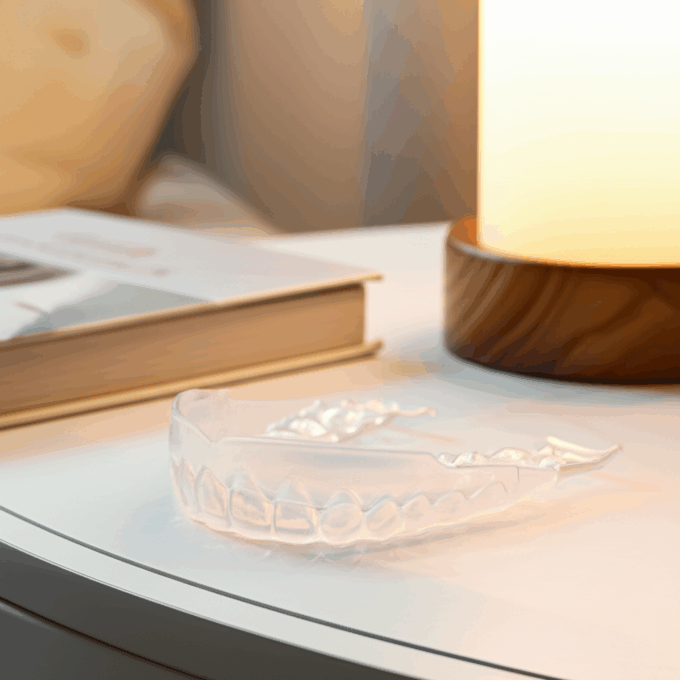Bruxism relief is a common concern for millions worldwide, with many individuals experiencing the involuntary habit of grinding teeth during sleep or even while awake. This condition, known as bruxism, can lead to a host of dental and health issues, from shattered enamel and jaw pain to headaches and disrupted sleep. Fortunately, effective solutions are available, and a crucial tool in managing this condition is the nightguard. This guide aims to demystify the world of nightguards, making the process of finding relief feel effortless.
Understanding Bruxism and Its Impact

Before diving into bruxism relief through nightguards, it’s essential to understand the nature of the condition itself. Bruxism is broadly categorized into two types: awake bruxism and sleep bruxism. While awake bruxism often involves clenching the jaw, sleep bruxism is more commonly associated with the forceful grinding of teeth. The exact causes of bruxism are not always clear-cut, but common contributing factors include stress, anxiety, sleep disorders, certain medications, and even misaligned teeth.
The repercussions of untreated bruxism can be significant. Constant pressure from grinding teeth can wear down tooth enamel, making them more susceptible to decay, sensitivity, and even fractures. This can lead to costly dental procedures and chronic discomfort. Beyond dental woes, bruxism can also manifest as temporomandibular joint (TMJ) disorders, characterized by pain and dysfunction in the jaw. Headaches, earaches, and even neck pain are frequently reported by individuals suffering from this condition. Furthermore, the audible grinding can disturb a sleeping partner, impacting sleep quality for both parties.
The Role of Nightguards in Bruxism Relief
Nightguards, also known as occlusal splints or dental guards, are custom-fitted or over-the-counter devices worn in the mouth, typically at night, to prevent direct contact between the upper and lower teeth. Their primary function is to act as a buffer, absorbing the forceful pressure of grinding teeth. By doing so, they effectively shield the tooth surfaces from damage and reduce the strain on the jaw muscles and TMJ.
Different Types of Nightguards for Bruxism Relief
When seeking bruxism relief through a nightguard, you’ll encounter a few main types, each with its own advantages and disadvantages:
Custom-Molded Nightguards: These are fabricated by a dentist based on an impression of your teeth. They offer the most precise and comfortable fit, ensuring optimal protection and minimal interference with sleep. Because they are tailored to your unique dental anatomy, they are generally the most effective at preventing grinding teeth. The material used is typically a hard acrylic or a softer, more flexible material, depending on your dentist’s assessment of your bruxism severity. While more expensive upfront, their durability and effectiveness often make them a worthwhile investment in long-term bruxism relief.
Boil-and-Bite Nightguards: These are available over-the-counter at pharmacies and online retailers. They are designed to be softened in hot water and then molded to your teeth by biting down on them. While more affordable than custom options, their fit is less precise, and they may not be as comfortable or effective for individuals with severe bruxism. They can sometimes feel bulky or slip out of place during the night. However, for mild to moderate cases, they can offer a good starting point for bruxism relief.
Stock Nightguards: These are pre-formed mouthguards that come in various sizes. They are the least expensive option but also the least customizable. Their generic fit means they are unlikely to provide a secure or comfortable experience and are generally not recommended for consistent bruxism relief as they may even exacerbate the problem due to poor fit.
Choosing the Right Nightguard for Your Bruxism Relief
The journey to bruxism relief begins with selecting the right nightguard for your specific needs. Several factors should influence your decision:
Severity of Bruxism: If your grinding teeth is severe, you experience significant pain, or your dentist has diagnosed advanced tooth wear, a custom-molded nightguard is likely the most appropriate choice. For milder cases, a boil-and-bite option might suffice.
Comfort: A nightguard should not disrupt your sleep. If it feels bulky, causes gagging, or is difficult to keep in place, it’s unlikely to be effective. Experimenting with different materials and types, or seeking professional advice, can help find a comfortable solution.
Durability: Nightguards are subject to considerable force. High-quality materials, especially in


